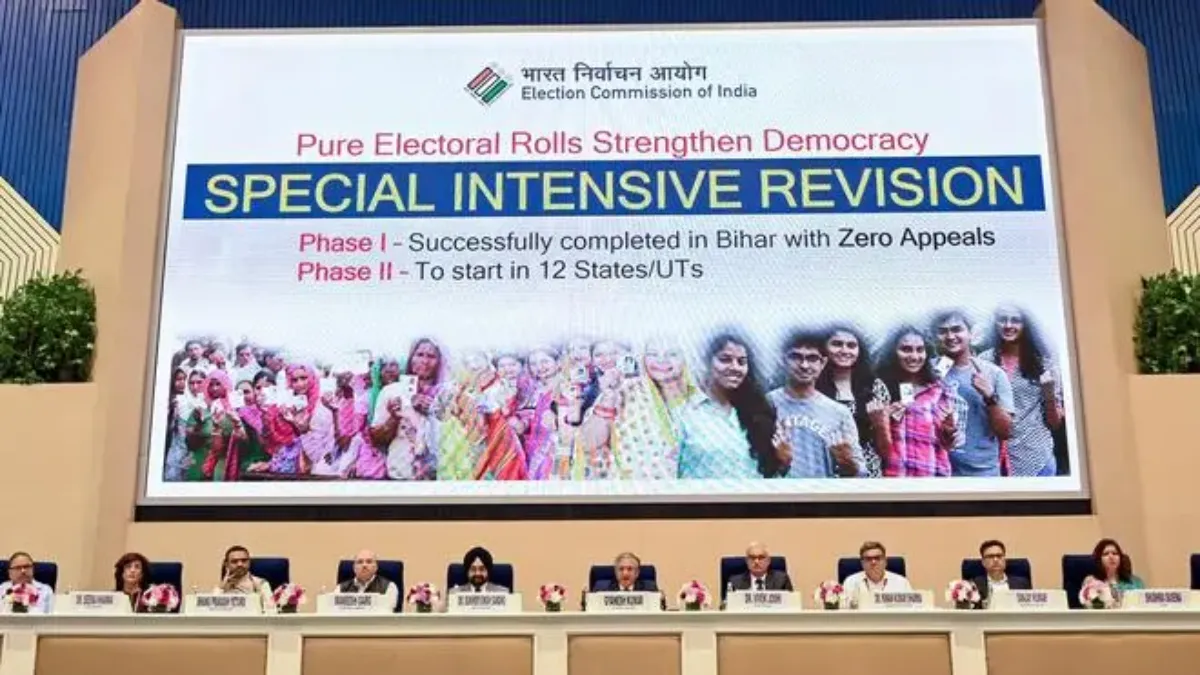New Delhi: The Election Commission of India (ECI) will kickstart the house-to-house enumeration under the second phase of the Special Intensive Revision (SIR) of electoral rolls from Tuesday, even as political tensions brew in several states over the exercise.
The SIR 2.0 drive will cover 12 states and Union territories Andaman and Nicobar Islands, Lakshadweep, Chhattisgarh, Goa, Gujarat, Kerala, Madhya Pradesh, Puducherry, Rajasthan, Tamil Nadu, Uttar Pradesh, and West Bengal with the process set to conclude on February 7, 2026, when the final electoral rolls are published. This round will encompass around 51 crore voters.
The first phase of SIR, conducted in Bihar between June and September this year, saw the voter list shrink to 7.42 crore from 7.89 crore registered on June 24.
The latest revision comes amid stiff political opposition. In West Bengal, Chief Minister Mamata Banerjee is leading a protest against what she calls an “unnecessary voters’ list cleanup drive,” while in Tamil Nadu, Chief Minister MK Stalin has convened a multi-party meeting and announced plans to challenge the exercise in the Supreme Court. Poll-bound states such as Tamil Nadu, Puducherry, Kerala, and West Bengal are due for elections in April-May 2026. Assam, however, has been excluded because of separate citizenship provisions governing its rolls.
According to the Election Commission, house-to-house verification will continue until December 4, with draft electoral rolls slated for release on December 9. Citizens can file claims and objections until January 8, after which final notices will be issued to unresolved cases between December 9 and January 31.
In a key procedural change from Bihar’s exercise, voters will not be required to submit any documentation while returning their enumeration forms. Those whose names appeared in the 2002–04 voter list or can be linked to a parent or close relative from that list will not need to furnish any documents. Only those unable to establish such a link will have to provide identity proof upon notification.
The Election Commission estimates that nearly 90% of voters will not be required to produce any documents under this revised mechanism. This second-phase revision marks the ninth such nationwide enumeration since India’s independence, the last being held between 2002 and 2004.
